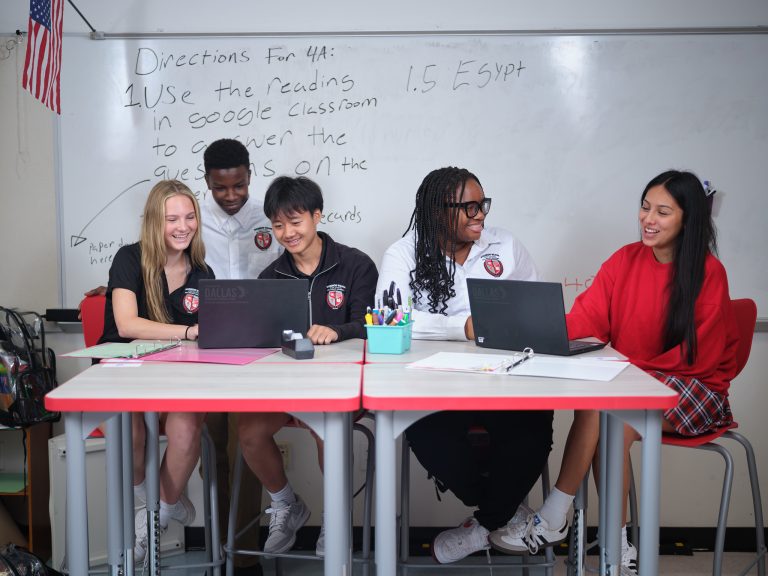Dallas ISD is rolling out a new initiative for high school seniors that introduces habits of mind competencies, designed to prepare students with transferable skills for college, careers, and beyond.
The three competencies are:
- Digital Inquiry and Competency: Led by media specialists, this module focuses on strengthening students’ digital literacy.
- Emotional Intelligence: Led by school counselors, this area helps students develop self-awareness and learn how to respond to others with respect.
- Communication Across Platforms: Guided by English teachers, this skill builds students’ ability to become stronger writers and communicators.
“These are human skills and employers are naming these as future-ready,” said Trustee Byron Sanders.
The courses, which take about three hours per competency, include videos, readings, and self-paced learning activities. Students must complete assignments and projects to demonstrate mastery before earning their digital badge. The badges can be added to resumes and LinkedIn profiles, giving students something measurable to show employers, universities, and their networks — a tangible outcome from skills that are often considered intangible.
Students who earn all three badges will also receive a special cord to wear at graduation. The initiative gives students the opportunity to articulate and showcase the skills they’ve developed through hands-on projects, such as creating a podcast, making a video, or other demonstrations tied to the module competencies.
A district dashboard allows leaders to track progress in real time, from individual students to entire campuses, helping inform adoption rates, engagement, and next steps for future implementation.
“I am thrilled that we are starting to roll out our habits of mind,” Sanders said. “This is the wave of the future, as we start to communicate how skills are being developed by young people that are transferable to any industry.”
Superintendent Stephanie S. Elizalde, Ed.D. credited the board with encouraging district leadership to emphasize the value of soft skills students develop through the habits of mind instruction.
“Without this board pushing us, I don’t think we would have codified it in this badging system,” she said. “Now we have something to tell employers and universities that our students can demonstrate – and meet a proficiency – in these skills.”
Students are expected to begin the modules at the end of October, with district leaders set to evaluate outcomes and next steps at the end of the school year.

